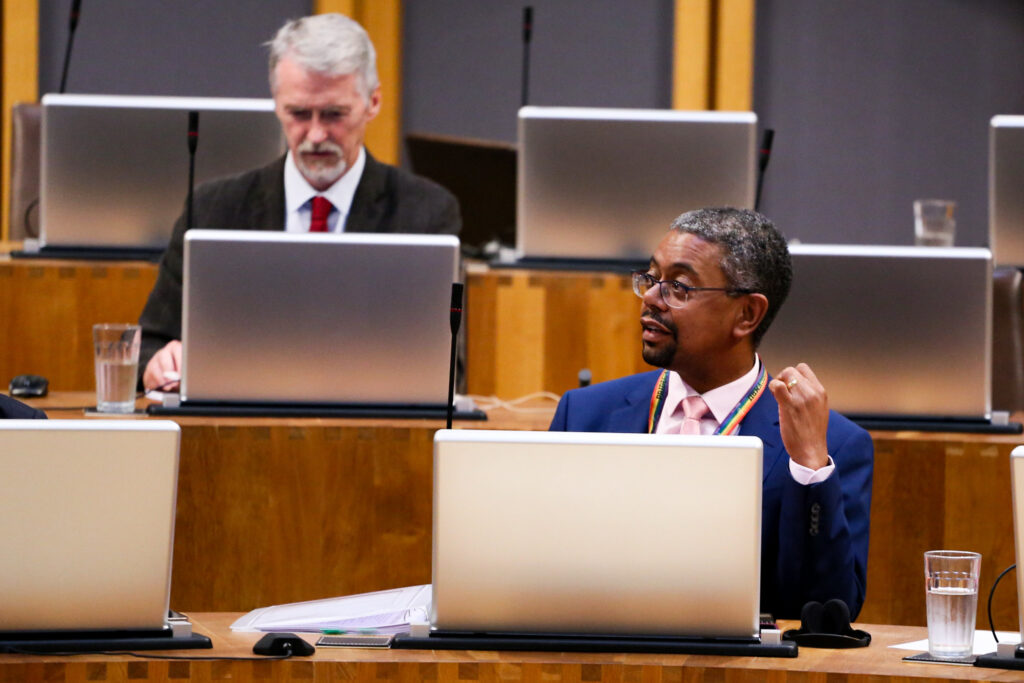Michael Gardiner argues that the British media are acknowledging a post-imperial constitutional threat they have been silencing for decades
The Guardian has recently run a series of entertainments under the (recycled) heading Disunited Kingdom, touching on some aspects of constitutional thinking. It comes several months after an SNP majority victory at Holyrood. Scottish independence is now favoured by a majority throughout the UK, putting us de facto in a post-devolution, ‘negotiation’ phase .
Much of the series is based on simple Moreno questions (do you feel English-not-British, more-English-than-British) and bemused looks at Scottish and Welsh nationalism, going back through devolution, the Constitutional Convention, the Thatcherite democratic deficit, the Kilbrandon report, and even the early 1960s crisis of consensus. If Guardian readers really are ignorant of these issues and their history (though the comments sections suggest otherwise), it is partly because of this newspaper’s studious dodging of the issue, as part of the UK mainstream media.
Devolution has caused an Anglo-Britishing of state-level media, as Michael Rosie and Pille Petersoo have described. While the scope of interest has become increasingly English, it has continued to present itself as British, all the way to ‘British’ riots and ‘British’ university fees. Only after the SNP victory on 5 May were the constitutional issues even tentatively acknowledged, in sulky columns by David Mitchell and Madeleine Bunting (analysed in turn by Gerry Hassan).
English issues have been used contrarily to maintain party-parliamentary norms, not just by today’s media and the current Coalition government. The gastro-pub wing of the Labour Party has been key in countering national and local forms of challenge, even under super-reinforced state capitalism. This party-parliamentary narrowing was particularly visible before the UK General Election of 2010. The Guardian concentrated on an increasingly recreational party-political ding-dong, willfully missing the constitutional challenge to come. Scottish nationalism was viewed wistfully (spreading outwards in concentric rings from an Edinburgh Festival of the mind), while the English national, as underlined by stories on the EDL, was quite casually and quite illogically ethnicised.
The Disunited Kingdom series continues in this tradition. London, for example, is presented as an anomalous melting-pot ‘beyond’ England – its Englishness is disavowed and the national is once again made synonymous with ethnicity or ‘race’ (for what else would melting-pot mean?) Keep it visible, this logic goes, keep it ‘racial’, and counter-British movements can do no structural harm to the unwritten constitution. Great resources have been dedicated to convincing us that English life is somehow bound up with prior ‘ethnic’ structures, to deflect us from the reality of the over-management of the nation by the state.
The timing of the Guardian’s series is recuperative rather than inclusive – tacitly accepting the eclipse of the political economy it previously supported and working out what can be retained. It doesn’t stray far from the dominant narrative of the UK mainstream press: that English self-determination is naturally conservative and undesirable; or that it is desirable but practically impossible. Thus English-not-British, as reported by Ross Bond, is presented as the most authoritarian response possible. A national body offering a serious constitutional shift is presented as more authoritarian than a UK security state run almost entirely by the neo-imperial political classes.
Since 1707 the United Kingdom has stood for the global reach of an instrumental alliance of banking and state, which has taken an imaginary and candidly class-fixed England as its ideological template. Meanwhile the real England, with Scotland, has sunk deep, only to slowly re-emerge as a possible level of reconstruction. If England can find anti-instrumentalising values in its sub-British past, so much the better. It may have to reconstruct in a Year-Zero sense, with an eye on devolved Scotland, Wales, and London. Either way, the possibilities far outstrip the ideologically interpolated fear of English nationalism that the ‘national’ press, including the Guardian, continues to transmit.






Comparative literary studies, since its infatuation with ‘deconstruction’ has become a by-word among the general public for a discipline that specialises in impenetrable jargon and incomprehensible obfuscation. Although writing about politics, Michael Gardiner has brought his professional influences to bear. I am sure this is an interesting article but I just didn’t understand what he was on about. Can we have an English (or Welsh) translation please.